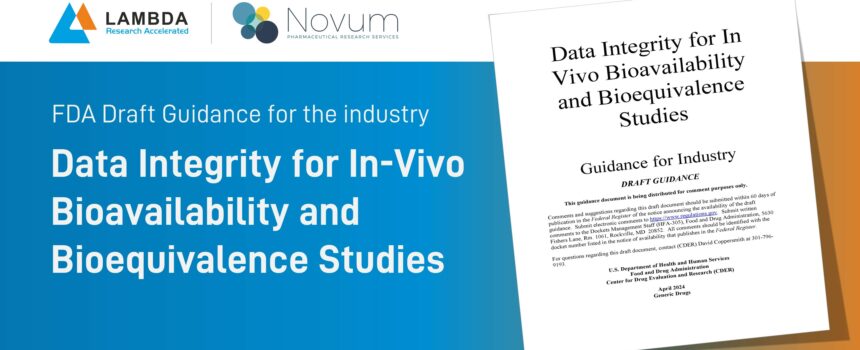The FDA recently unveiled the draft guidance for the industry titled, “Data Integrity for In Vivo Bioavailability and Bioequivalence Studies.” This draft guidance serves as a framework for maintaining the highest standards of data integrity in clinical and bioanalytical domains, crucial for supporting investigational new drug applications, new drug applications, and abbreviated new drug applications. The purpose of this guidance is to provide recommendations to applicants and testing site management on achieving and maintaining data integrity for the clinical and bioanalytical portions of bioavailability (BA) and bioequivalence (BE) studies submitted in support of investigational new drug applications (INDs), new drug applications (NDAs), and abbreviated new drug applications (ANDAs), and the bioanalytical portion of clinical pharmacologic studies supporting CDER-regulated biologic license applications (BLAs) as well as amendments and supplements to these applications. In addition, the recommendations in this guidance apply to the bioanalytical portion of nonclinical studies. FDA also encourages applicants and testing sites to consider these recommendations when conducting other studies, including in vitro and pharmacology and toxicology studies.
This guidance provides recommendations to achieve and maintain data integrity concerning (1) applicants, (2) testing site management, and (3) implementation and management of a quality management system. This guidance does not include a comprehensive list of all best practices that applicants and testing sites should use to achieve and maintain data integrity. It is each applicant’s responsibility to achieve and maintain data integrity for their studies, which includes identifying and implementing the most effective and efficient risk-based controls.
At Lambda Therapeutic Research, we recognize the importance of this draft guidance, which offers essential recommendations to applicants and testing site management. Our experienced team of professionals remains dedicated to implementing robust quality management systems that ensure the integrity of data throughout every stage of the research process.


